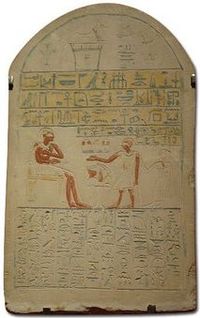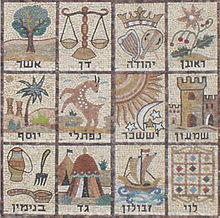 How important is being mentioned by name? Often at the end of an event you hear thanks being given to those people who helped to organize it and who gave their time to make sure all in attendance were well taken care of. Rarely does the speaker have the opportunity to thank everyone by name. In Exodus 1, two women are mentioned by name. Because the Hebrew slaves were increasing in numbers and strength, Pharaoh became fearful of an uprising. He told the slave masters to work them ruthlessly. And then he ordered the Hebrew midwives to kill the baby boys that were born. But the midwives, Shiphrah and Puah, refused to do that. When Pharaoh discovered this, he summoned them for questioning. No doubt two slave women brought before the king were afraid, but they stood up to him and were spared their lives. Only two midwives were named in Exodus though it is more than likely that many midwives served the Hebrew women. Shiphrah and Puah were probably the leaders among the midwives and that's why they were brought to Pharaoh. And so they are mentioned in the account, like the organizers of an event, as a way of thanking them and their coworkers for their service. These women, who were not afraid to stand up for what they knew to be right, saved lives and entered the pages of history. For Reflection: We are all descended from a long line of ancestors. What courageous people do we have to thank for the gift of life? Who crossed a sea or fought a war or stood up to a king that I might someday be born? Let us pray. God, I thank you for Shiphrah and Puah and their bravery. I thank you for all of my ancestors - my ancestors in life and my ancestors in faith. I thank you for the few I know by name and the many whose names I don't know. I thank you for all those who struggled and persevered for my sake.
0 Comments
 Sit, walk, build, put off, put on. What's next? In our brief review of Paul's letter to the Ephesian church, we have come across these command verbs. We are to sit with Christ in the heavenly places. This is a time of resting in Him and learning who He is and who we are. When we have done this, we are to walk in the ways Christ has shown us. We are to build one another up into the mature body of Christ. Then put off our old ways, and put on the new ways of Christ. So what is next? Imitate God. Paul writes, "Be imitators of God, therefore, as dearly loved children and live a life of love, just as Christ loved us and gave himself up for us as a fragrant offering and sacrifice to God" (Ephesians 5:1-2). We learn that we are dearly loved children when we sit in the place of rest with him and learn his ways. When we sit with him in the heavenly places, we observe the ways of the kingdom of God. Since Jesus and the Father are one, when we learn the ways of Jesus, we learn the ways of the Father (and the Holy Spirit). That is how we learn what is to be imitated. Children learn by imitating their parents. Even Paul did not begin his apostolic life by going out right away to do things. He began by learning about Jesus and learning new ways of living and loving. He began from that place of rest in Christ before he began to preach. Although he began with "the big reveal", he had to learn to walk all over again. He had to learn to build rather than tear down. He had to put off his old ways before he could put on the new. He had to learn to imitate God when he himself had not seen Jesus in his earthly life. For Reflection: There are many ways to learn to imitate God: reading and studying the Scriptures, prayer, meditation, walking with others who are more mature than we are. And, if we belong to a sacramental church, availing ourselves of the sacraments. Let us pray. Jesus, we know that you do not leave us adrift when it comes to learning how to follow you. Help us, your beloved children, to grow more like you every day. What do you want me to grow in today?  We have been considering arguments against healing in modern times. Another point brought up by people is the prayer of Jesus when he was in the Garden of Gethsemane. As recorded in Luke 22:42, Jesus prayed, "Father, if you are willing, take this cup from me; yet not my will, but yours be done." Jesus was not asking if his Father was willing to heal him because Jesus was not sick. Jesus was asking if there was some other way to redeem the world other than his suffering and death. The answer to that prayer was "no", but the Father graciously sent an angel to strengthen his Son in his time of anguish. So the idea of "if it by thy will" (to heal) is not justified by Jesus' prayer before he died. We've looked at suffering on behalf of preaching the Gospel (which Jesus certainly did) in other posts. We will come back to it again soon when we consider Paul's "thorn in the flesh". Let's look now at the idea of "offer it up" which is another popular response to illness. Offer it up seems to mean that we are to combine our suffering with Jesus' suffering on the cross. Scripture says that Jesus died once for all. I can't imagine that he didn't get the job done or that the redemption of the world requires some suffering from me in order to be complete. Surely not. But there is a meaning for "offer it up" that is useful. What is offered to God, or sacrificed to God, is placed on the altar. It is literally "given to God" so that the person offering it no longer owns it; it now belongs to God. If we can offer our illness to God, place it on the altar and let him have it, then the sickness is no longer ours. We are free from it. Perhaps we are hesitant to give him our illnesses. Why would he want to take them anyway? Yet we believe that he takes our sins, which are much worse than our illnesses. Let us pray. Christ, my Redeemer, I give you today all the things that I have been holding on to that I don't need, don't want and can't handle.  We have been speaking of Joseph and his brothers for a while and the terrible thing they did to him. We noted how Joseph forgave them, and their father forgave them. But did they forgive themselves and change their ways? Well, they still weren't above a little deceit. When their father died they were afraid that Joseph would rescind his forgiveness and start taking revenge on them. So they told Joseph that their father Jacob, on his deathbed, asked for Joseph to forgive them. Joseph wept when he heard this from them for he had truly forgiven them and thought that was behind them all. Why had they been unsure of his forgiveness? I think it was because they still had not forgiven themselves. Their own lack of forgiveness reared its ugly head as suspicion of Joseph. Then they slipped back into their habit of lying to get what they wanted. For reflection: It can be hard to break out of habitual ways of relating to one other. If forgiving others and forgiving ourselves becomes our habit, then other habits like lying will disappear. Let us pray. "His mercy extends to those who fear him, from generation to generation. He has performed mighty deeds with his arm; he has scattered those who are proud in their inmost thoughts. He has brought down rulers from their thrones but has lifted up the humble. He has filled the hungry with good things but has sent the rich away empty. He has helped his servant Israel, remembering to be merciful to Abraham and his descendants forever, even as he said to our fathers" (Luke 1:50-55).  Of the 12 sons of Jacob, 9 had conspired to sell Joseph into slavery. Another one participated in the cover up. It was a terrible sin, but they were forgiven both by Joseph and by God. From those 12 came the nation of Israel. God did not choose 12 men who were without sin, he chose 12 who knew the power of forgiveness. Forgiveness restored the relationship of the brothers to Joseph. Forgiveness restored the relationship of the guilty sons to their father. They had lied to their father and kept it secret for many years. No doubt if Joseph had not forgiven his brothers, his father would not have forgiven them either. Forgiveness saved their lives. Had Joseph not forgiven them, they never could have gotten the food in Egypt that saved them from the famine. For reflection: Forgiveness still has that power today. It has the power to restore relationships and save lives. It has power across miles, across generations, across time, death and eternity. Whom do I need to forgive? Let us pray. Father, I thank you for showing me the way to forgiveness. It is possible to even forgive people who have tried to kill me, or who wished me dead, or who have lied to me for years. With your help, I choose to forgive.  "We sold him for a pittance. We expected him to die. He forgave us anyway." I can just hear Joseph's brothers telling the story to each other, to their friends, to their sons and daughters. When the whole family got together over dinner, this was the story they told, generation after generation. It was a story of forgiveness they could never have believed if they hadn't experienced it themselves. What happened? In a nutshell, the jealous older brothers sold their younger brother Joseph to slave traders. Knowing that the slavers would treat their brother harshly in the desert, the brothers never expected that Joseph would make it to the slave market. But he did. He was bought in Egypt, had a rough life, and then, through a series of divine appointments, became the second most important man in Egypt. When a famine came over his homeland, the brothers came to Egypt looking for food. What they found was Joseph. And forgiveness. (Joseph's story is told in Genesis 37-50.) For reflection: Where does this kind of forgiveness come from? What stories of forgiveness can I tell from my own life? Let us pray. Father of Forgiveness, you lead me in ways in would not choose for myself. If not for you, I would not choose forgiveness; I would not choose to let go. But with your strength and your help I choose to forgive.  Today in the United States we have the 40th annual mourning of the babies aborted since abortion became legal in the U.S. Thousands of people will march in Washington to say that life is sacred. Not only should babies not be aborted, but our schools should not become shooting galleries, teens should not be killed on the streets, and adults on death row should not be executed. Children are both a parent's blessing and an obligation. They provide both joy and frustration. Parents are both a child's blessing and an obligation. They provide both joy and frustration. Let us pray today for our children and our parents. Eternal Father, I ask you to bless my children as you blessed your Son. Bless them with a right relationship with you, a long and healthy life, and eternal happiness in your kingdom. Jesus, I ask you to bless my parents. May they have a long and healthy life and walk in your ways all their days. May your face ever shine upon them.  Grandparents often joke with their children about getting the same kind of children they were, especially if they were rascals. "Just you wait," they say. "Your children will be just like you when you were growing up." Often that is true. Let's continue to look at Jacob and his life for a moment. Yes, Jacob showed favoritism among his sons and they were rivals for his affection. Where might he have experienced favoritism and sibling rivalry in his own life? Jacob had a twin brother named Esau. He and Esau were rivals for their parents' affection. The Scripture tells us that Esau was a hunter and a man of the open country while Jacob was a quiet man who stayed at home. Their father Isaac loved Esau, and their mother Rebekah loved Jacob. So Jacob grew up with favoritism being shown by his parents and in rivalry with his brother Esau (Genesis 25:19 -27:45). As a father himself, Jacob showed favoritism among his sons and experienced rivalry among them too. His boys turned out just like him and his brother Esau. For reflection: What habits of my parents have I carried forward into my life? Are they good or bad habits? Let us pray. Father God, I thank you for my parents. I thank you for the love they showed to me and that they did their best to raise me to adulthood. I thank you for being my Father also, for keeping me under your wing even today. I ask you to help me forgive my parents for not being everything that I needed them to be. I repent of judging them for what they did and did not do. I forgive them for not being perfect parents. (It is important to forgive them as specifically as you can in this type of prayer.) I ask you, Father, to bring to my mind the other things for which I need to forgive my parents. (Pay attention to memories that come up in the next couple of weeks. As God brings these to mind, forgive your parents for them.) I repent of carrying on my parents' bad habits in my own life and with my children. Forgive me for the bad ways I have acted toward my children (again, be specific and pay attention to memories that arise in the next couple of weeks). Help me to see my children through your loving eyes, Father. You are the only perfect Father. Help me to be more like you.  As another area needing forgiveness let's look at a bad case of sibling rivalry. The story of Joseph and his brothers from Genesis 37 - 50 is one of the most well known in the Bible. It begins with Joseph's 10 older brothers being jealous of him because "Dad liked him best". There is plenty of blame to go around in this story, and plenty of repentance and forgiveness needed. First, the boys' dad, Jacob, should not have shown preference among his sons. Yet he did it so blatantly that they all recognized it (Genesis 37:3-4). So Jacob, head of the family, is the instigator and definitely at fault. Jacob should have repented and asked his sons' forgiveness. Second, the older brothers got fed up with the favoritism. Instead of confronting their father about it though, they took it out on Joseph. Third, Joseph should not have been flaunting his pride of place in front of his brothers, even if he was younger and less responsible than they. For Reflection: Let's concentrate on Jacob's role today. Is there any place in my life where I have shown favoritism when I should not have? At home? At work? Why am I showing favoritism? (Read James 2:1-13) Let us pray. Father, thank you for revealing to me where I am showing favoritism. I repent of that and I ask your help in correcting my attitude and my feelings. I ask your forgiveness for treating others unfairly. Please help me to treat them the way you want me to treat them.  Joseph gets no respect. Sometimes I think he is the Rodney Dangerfield of the Scriptures. Little is known about him. He has no speaking lines. After the early years of Jesus' life, he simply disappears from the story. But Joseph is a man open to hearing God's instructions in a dream and following through on them. He bases a life-long decision on that dream. And, like Mary, Joseph too says "Yes" to a sticky situation. As a man of integrity he keeps his word until the end of his life (Matthew 1:18-25). For reflection: Do I hear God in dreams? When I hear God's instructions, do I make a complete commitment to following them? Let us pray. Jesus, I don't know how many times it says in the Scriptures, "If today you hear his voice, harden not your hearts", but I know it is repeated over and over. I make a commitment to you today. If today I hear your voice, I will not harden my heart. |
AliceI started this website and blog on May 1, 2012. I am a Catholic who has been in ministry for many years. I first developed what I would call a close relationship with Jesus in the early 1970s. Ever since then I have been praying with people for healing and other needs. It is because I have seen so many of these prayers answered that I am so bold as to offer to pray for you individually through this website and phone line. Archives
July 2021
Categories
All
|
Proudly powered by Weebly

 RSS Feed
RSS Feed